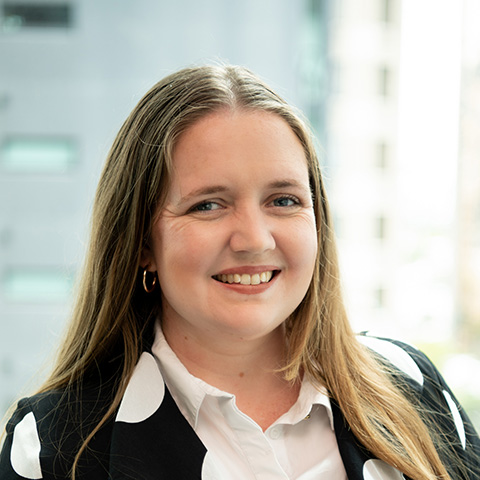What can you do with an Honours degree from the Faculty of Humanities and Social Sciences?
Our graduates end up all over the globe undertaking PhD's, working for governments, the private sector, non-for-profits, galleries, they go on to do teaching, researching, being project managers and undertaking many other roles! Having your Honours gives you a step up from the competition and opens you up to a world of opportunities.
Check out some of our graduates and be inspired to undertake 'One year. One extraordinary research experience'.
18. Heidi Hoffmann, Bachelor of Arts (Honours) in Sociology
What was the best thing about your Honours program at UQ?

Working so closely with my skilled supervisors was the best part of my experience in the Honours program. For many students, it’s the first time they will work in such a collaborative manner – and during that year you learn so many crucial skills for future employment. A skill that I acquired through Honours that has served me exceptionally well is the ability to handle receiving feedback on work I have done.
During my Honours year I learnt to separate my work and my sense of self – and this has honed my hunger for learning, for developing, and for improving. My employers value my ability to both receive and give feedback. Learning that even the most accomplished and senior people go through drafting and feedback processes can give you the confidence to graciously accept feedback and use it to make your good work even better.
Any tips for Honours students?
A good thesis is a finished thesis. Try to avoid feeling like it is your life’s work – it isn’t. This is a training program, and while you will be very proud of the document you have at the end, it doesn’t define you or what you will be capable of in the future. Don’t sweat it, just write it.
A similar mantra I had to adopt during Honours (that I continue to use now), you can’t have the finished product until you’ve written it badly first. Try to keep the sleek and sophisticated final product out of your mind, focus on getting the clever thoughts out of your head and onto the paper.
How did your study help you to get to your current role, and what does your current role involve?
My experience in Honours and research in general has directly led to my role as a consultant in the energy and resource space. I do a mixture of desktop research and stakeholder engagement to create a wide range of reports and assessments that inform our clients on the perspectives and experiences of the communities they are planning to or are already present in. The skills you learn in Honours are priceless. My report writing skills are my biggest strength (concise and clear writing). My critical thinking and attention to detail are equally important, and they make me a very valued member in the team.
What did your study lead to?
My study led to work as a research assistant, working on grants writing, publications in peer-reviewed journals, and entry into a PhD program. With my study under my belt, it also led me to my current role in industry, and I work for a global company where my opportunities are literally limitless.
What challenges have you came across in your career, and how did you overcome them?
My biggest challenge was reaching a point where I had to decide to leave my PhD program and seek out a career outside of academia. I overcame the difficulties by talking a lot with a lot of different people! It’s also important to not discount the support of healthcare professionals, and to really lean into those supports that are available.
What advice would you give to students in the same discipline as you studied?
I would tell any Social Science student (and Sociology/Anthropology) students in particular that their discipline is valid and applied social research is becoming essential to almost every sector there is. There are so many opportunities in industry, where you will be valued, and you can make a difference.
